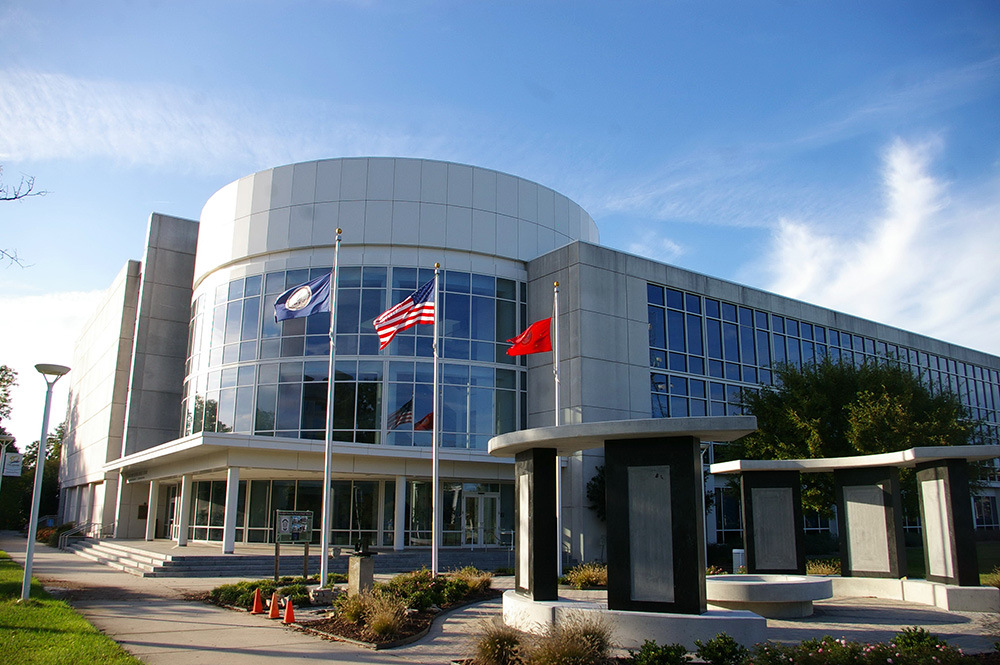Provided Pro Bono by: Shapiro, Washburn & Sharp Law Firm
The Chesapeake Circuit Court oversees a wide variety of cases, including civil, criminal, and family law matters, and serves as the court of general jurisdiction for the city. As one of the main courts in the region, it plays a vital role in ensuring that justice is served and that disputes are resolved fairly.
The Circuit Court is located at 307 Albemarle Dr, Chesapeake, VA 23322, and it is equipped to handle complex cases, including medical malpractice, vehicle accidents, and other personal injury lawsuits.

Chesapeake, VA Circuit Court
Court Policies on Cell Phones and Security
Like most courthouses, the Chesapeake Circuit Court has strict policies regarding cell phones and other electronic devices. Only attorneys, law enforcement officers, and court personnel are allowed to bring cell phones into the courthouse. Visitors are also not allowed to bring any other type of electronic devices, such as cameras and recording devices.
Visitors entering the courthouse must undergo a screening process conducted by a sheriff’s deputy. The deputy will check all purses and cases coming into the building and conduct a walk-through screening. Any prohibited items must be left outside the courthouse. Deputies will not hold or take responsibility for any items left outside. Visitors are encouraged to leave these items in their vehicles.
Parking Availability
Parking is a common concern for visitors to any courthouse, and the Chesapeake Circuit Court offers convenient municipal free parking options for those attending hearings or trials. Parking is available in front of the Public Safety Building. This lot is open to the public during regular business hours and offers a convenient option for those who need to park for short periods.
As with many courthouses, arriving early to secure a parking spot is recommended, particularly during busy times.
Judicial Structure and Number of Judges
The Chesapeake Circuit Court is staffed by five judges who preside over cases in various legal areas, including criminal, civil, family law, and probate matters. These judges manage different caseloads and ensure that legal proceedings are conducted efficiently and fairly. The judges work diligently to ensure that all cases are heard in a timely manner, and they rotate through different divisions to handle the diverse types of cases that come before the court.
The judges are experienced legal professionals who bring a wealth of knowledge to their work. They are tasked with making important decisions on a wide variety of cases, from criminal trials to civil disputes and family law matters. The court’s structure allows for effectively managing a heavy caseload, ensuring that all cases are handled appropriately.
The Chesapeake Circuit Court is authorized to hear both jury and non-jury trials. Jury trials are most commonly used for serious criminal cases, such as felony offenses, where the defendant has the right to be tried by a jury of their peers. Jury trials are also available in civil cases where the damages involved are significant. In these cases, the jury evaluates the evidence presented during the trial and renders a verdict based on the facts.
For non-jury trials, the case is heard by the judge alone. Non-jury trials are typically used for less complex cases or when one of the parties waives their right to a jury. Non-jury trials are common in civil cases involving smaller claims or in family law matters, such as divorce or child custody disputes.
How Do I Pay for a Personal Injury Lawyer?
Do I Need a Lawyer for My Truck Accident Case?
Filing a Personal Injury Case in Circuit Court vs. General District Court
There are several important differences between filing a personal injury case in the Chesapeake Circuit Court and filing in the General District Court. One primary difference is the monetary limit for claims. The General District Court handles civil cases involving claims up to $50,000. If a personal injury claim exceeds this amount, the case must be filed in the Circuit Court.
The Circuit Court is equipped to handle more complex cases that involve higher claims and a more involved legal process. The Circuit Court allows for more extensive discovery processes, including depositions, written interrogatories, and document exchanges, which are unavailable in the General District Court. This gives the parties more tools to build their case and prepare for trial.
Another significant difference is that the Circuit Court allows for jury trials, which is often an important consideration for plaintiffs seeking damages. A jury of peers will evaluate the evidence presented and determine the outcome of the case. In contrast, the General District Court does not allow for jury trials, and cases are typically heard by a judge alone.
Because the cases in the General District Court are less complex, the legal procedures are streamlined to allow for quicker resolutions. In contrast, cases in the Circuit Court often take longer to resolve due to the more detailed legal process and the higher stakes involved.

The Chesapeake Courthouse was completed in 2000 and houses both the Circuit Court and the General Court.
All We Do Is Injury Law
Our Chesapeake, VA, personal injury law firm is very familiar with this local circuit court, having had local area jury trials and hearings stretching back to 1995 before this and other local circuit courts in Virginia. Knowing our way around the local courthouse, including being familiar with the propensity of the circuit court judges, having dealt with circuit court staff in the past, and having tried significant personal injury jury trials, makes our firm uniquely situated to handle major and catastrophic personal injury cases before our local circuit courts.
Since 1985, our firm has handled nothing but personal injury law, and our reputation in the local community speaks volumes. If you or a loved one has been injured, call 833-997-1774 to schedule a free and confidential case evaluation with one of our dedicated Chesapeake personal injury lawyers.